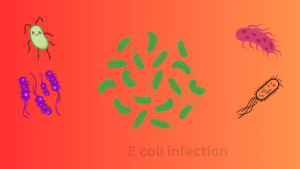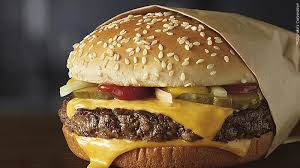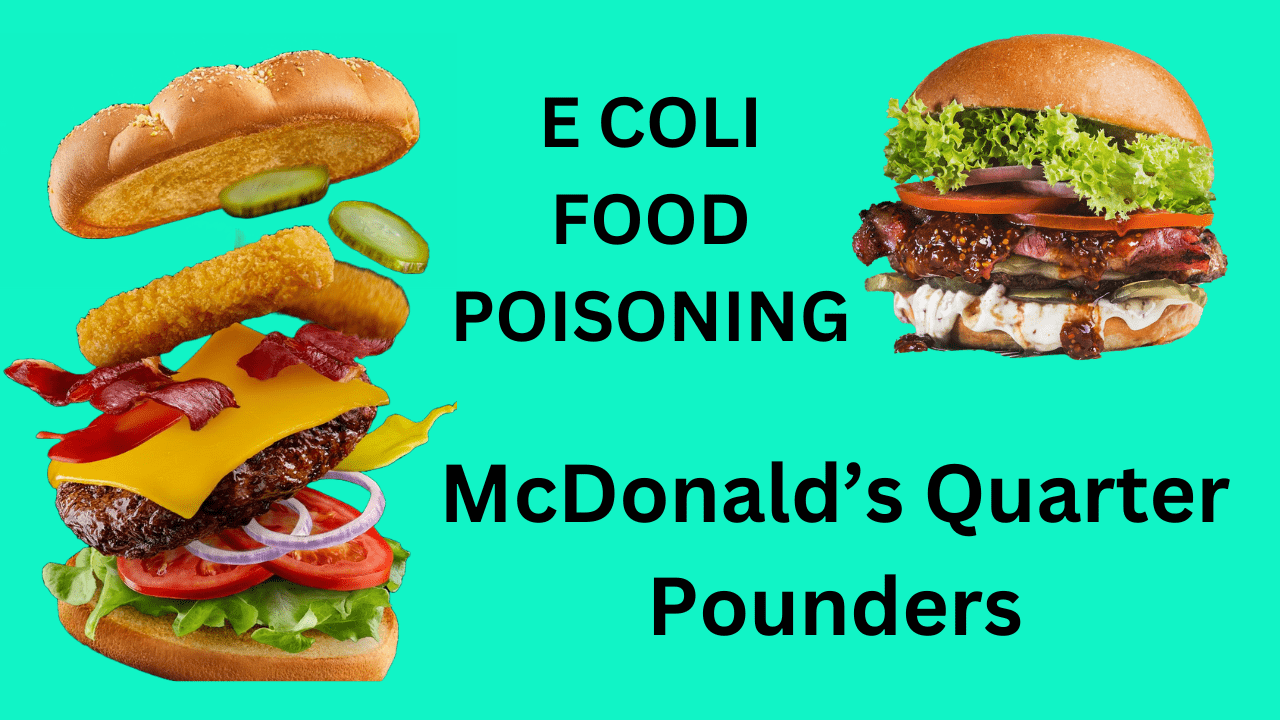Recently, a serious outbreak of E. coli O157 infections has been linked to McDonald’s Quarter Pounder hamburgers, affecting multiple states. Investigations by the CDC, FDA, and other health officials are ongoing, but the outbreak highlights significant risks associated with foodborne pathogens like E. coli. This article explains E. coli, its contamination sources, the impact on consumers, and the measures taken in response to the outbreak.
What is E. coli?
Escherichia coli, or E. coli, is a bacteria naturally present in the intestines of humans. many strains are found harmless, but some like E. coli O157 produce toxins that can cause severe foodborne infection. This strain is known as Shiga toxin-producing E. coli (STEC) and is particularly dangerous because it can cause severe stomach cramps, bloody diarrhea, vomiting, and in rare cases, life-threatening kidney problems.

How Does E. coli Contaminate Food?
E. coli contamination typically occurs through:
- Undercooked Meat: Beef is a common source, especially ground beef, as bacteria from the surface can mix with the interior during processing.
- Fresh Produce: Vegetables and fruits can be contaminated if they come into contact with fecal matter during farming, handling, or processing.
- Cross-Contamination: Poor food handling practices, such as using the same utensils or surfaces for raw and cooked food, can spread bacteria.
- Water Contamination: If water used for washing produce or in the food preparation process is contaminated, it can introduce E. coli to the food.
In the case of the current McDonald’s outbreak, investigators suspect contamination in either the Quarter Pounder beef patties or fresh slivered onions used in the burgers, though the specific ingredient has yet to be confirmed.
The Outbreak at McDonald’s
As of October 2024, 49 people across 10 states have fallen ill after consuming Quarter Pounder hamburgers from McDonald’s, with 10 hospitalizations and 1 death reported. Most of the cases have been concentrated in states like Colorado and Nebraska. While McDonald’s has pulled some ingredients from its affected restaurants, the investigation is still ongoing.
McDonald’s, in collaboration with public health authorities, has temporarily stopped using fresh slivered onions and Quarter Pounder beef patties in several states as a precaution. The affected hamburgers are no longer available in those areas while investigators determine which ingredient is contaminated.

Impact on Consumers
For people who ate contaminated food, symptoms typically appear 3 to 4 days after exposure to E. coli and include:
- Severe stomach cramps
- Diarrhea (often bloody)
- Vomiting
Most individuals recover within a week, but some may develop more severe complications. One of the most concerning complications is hemolytic uremic syndrome (HUS), a form of kidney failure. This condition is more likely to occur in children, the elderly, and those with weakened immune systems, and it often requires hospitalization.
Actions Taken by Authorities and McDonald’s
To mitigate the risk, McDonald’s has proactively stopped using the suspect ingredients in affected states, and they are cooperating fully with the CDC and FDA to identify the contamination source. No official recall has been issued yet, but removing the possibly contaminated ingredients is a crucial step in protecting consumers.
Health officials are urging anyone who ate a Quarter Pounder and is experiencing severe E. coli symptoms, such as diarrhea lasting more than three days, bloody diarrhea, or signs of dehydration, to seek medical care immediately. Dehydration symptoms include:
- A dry mouth or throat
- Dizziness when standing
- Urinating infrequently
Preventive Measures for Consumers
Consumers can take steps to reduce their risk of E. coli infection by following proper food safety practices:
- Cook Meat Thoroughly: Ground beef should be cooked to an internal temperature of 160°F (71°C) to kill harmful bacteria.
- Wash Produce: Fresh fruits and vegetables should be washed thoroughly under running water before consumption.
- Avoid Cross-Contamination: Keep raw meat separate from other food items during preparation, and always wash hands, utensils, and cutting boards after handling raw meat.
- Hygiene: Wash hands frequently, especially before eating, after using the bathroom, or after handling animals.

Online Consultation and Support
McDonald’s has taken several steps to address the outbreak and ensure customer safety. They have pulled the affected ingredients from some restaurants and are working closely with health authorities to ensure the situation is resolved quickly. Customers are encouraged to stay informed about the ongoing investigation by visiting public health websites like the CDC.
For consumers who may have concerns about their health or want more information, online consultations with healthcare providers are available. People can reach out to health professionals for advice or to discuss any symptoms they might be experiencing after consuming a Quarter Pounder.
Conclusion
The recent outbreak of E. coli linked to McDonald’s Quarter Pounders is a serious public health concern. While most people recover from E. coli infections without complications, the bacteria can cause severe illness, especially in vulnerable populations. McDonald’s and public health officials are working to address the issue, and consumers are advised to be cautious and seek medical care if they experience symptoms.
Ensuring proper food safety practices at home and being mindful of any potential outbreaks are key to preventing foodborne illnesses. As the investigation continues, McDonald’s has taken preventive measures to safeguard its customers, and anyone who is concerned about their health should consider seeking online medical consultation for quick support.
For more information on the outbreak and ongoing updates, you can visit the CDC’s website or contact your local health authorities.

